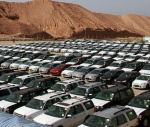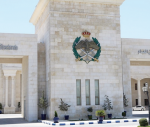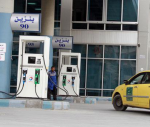You are here
Before any deal is announced, not after
Apr 05,2018 - Last updated at Apr 05,2018
It goes without saying that nearly all Arab countries and the Palestinians take it for granted that peace cannot happen in Palestine and the region without America's involvement.
The history of the Arab-Israeli conflict bears testimony to this premise. In all cases where peace has materialised — meagerly, bilaterally and piecemeal, of course — between individual Arab sides and Israel, the US administration played a pivotal role.
This was the case in the 1978 Camp David Accords between Israel and Egypt, in the 1993 Oslo Agreement between Israel and the Palestinians, and in the 1994 Wadi Araba Agreement between Israel and Jordan.
In their discourse also, Arab leaders keep calling on the US to play a role and pressure Israel.
At present, this is what the Arabs are precisely waiting for: an American move that pushes peace forward.
In principle, as well as in reality, this position is understandable. Israel is not reciprocating Palestinian and Arab gestures for peace, and therefore the only country in the world that could push the Israelis to come to the negotiating table is the US.
Of course, the question whether this American administration can live up to expectations remains to be seen, in light of the fact that it has not yet crystalised any coherent approach to the overall Palestinian-Israeli situation, as well as the fact that to date it appears to be the most skewed and most biased towards Israel of all American administrations in recent memory.
In addition to the fact that, as the position toward Jerusalem has so far revealed, this administration is capable of taking bold but erratic and disastrous decisions.
And this is worrisome.
What is more worrisome, however, is the Arabs and Palestinians "waiting" for the American administration to crystalise the peace approach and the vision.
It is one thing to deal with America as a peace "mediator" or even "patron" and quite another to "rely" totally on America to bring about the desired outcome.
At present, the Palestinians and the Arabs appear to be doing the latter.
All we hear about is Palestinian and Arab anticipation and guessing of what the "deal of the century" might be about.
We have not heard much or read much about what or how the Palestinians and the Arabs are doing to shape or influence the so-called deal, which the American administration is presumably working on.
We hear about bilateral contacts between some Arab sides and the American administration, most of which may not in fact be about peace between the Palestinians and the Israelis; but multilaterally and collectively we hear or see none.
This is bad.
We expect those that are most directly concerned with the Palestinian issue, the Palestinians themselves and several Arab countries, to work actively together to formulate a collective vision of what the real peace deal should look like, and how to actively engage with the American administration to bring about such a deal.
In the absence of this, the Palestinians and the Arabs not only appear to have no ideas of their own to propose, and no political will, but to be pathetically reliant on the American administration's will and whim.
Palestinians and Arabs should pull their act together and be proactive before any deal is announced, and not after.













